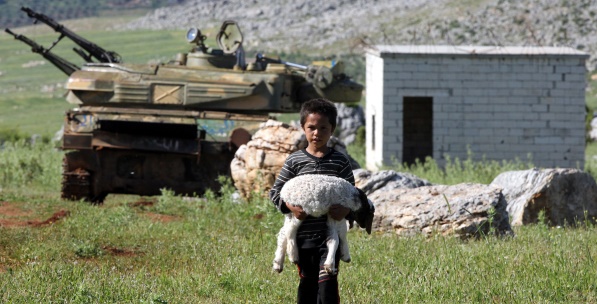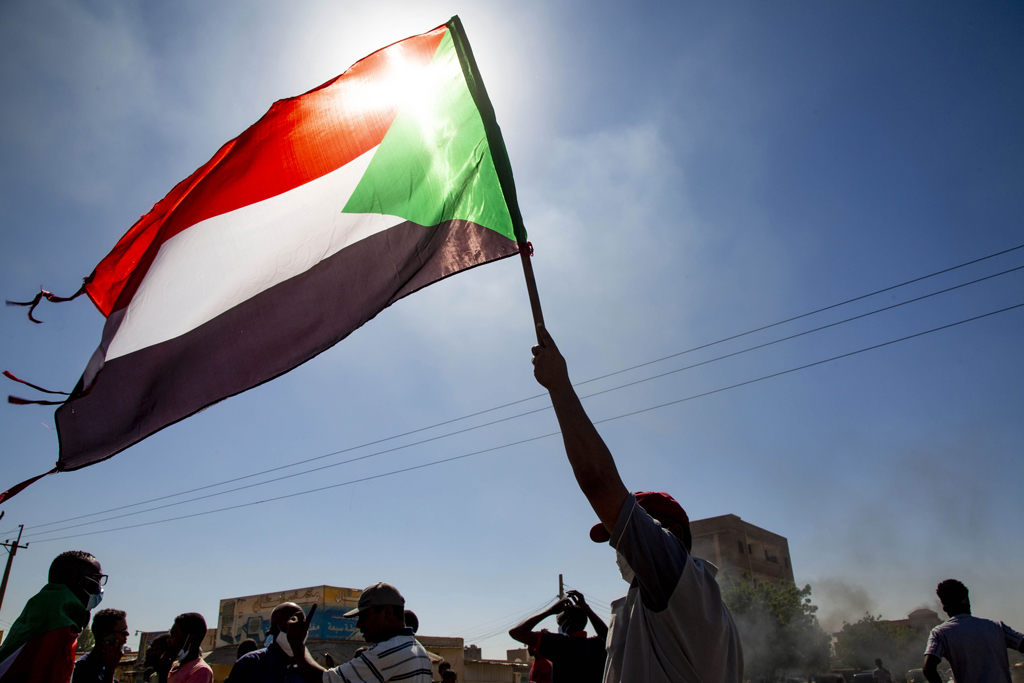The death and destruction which has been seen across Syria for three years now sometimes intentionally or unintentionally remains under the radar of our daily agenda. In recent months the emergence of two narratives about Syria are increasingly shaping the perception of the crisis in the country and even sometimes make the above-mentioned ignorance a more intentional one. Both of these narratives on the one hand provide self-confidence for the Assad regime by raising false hope among the pro-regime forces and on the other hand giving almost a source of legitimacy for Assad by describing the conflict as a war between two evils and by portraying Assad as the lesser evil.
First of all, some sources and observers of Syria are increasingly using the "Assad is winning" discourse in order to describe the situation on the ground in the country.
According to these sources, due to the disorganized nature of the opposition and the emergence of an increasingly well-trained and disciplined militia on the part of regime forces, the tide of the war has started to shift in favor of Assad and it is likely to remain so.
However, it is not clear what is meant by winning a war when most of the cities have become uninhabitable, millions of people have been displaced or become refugees, and when there is a continuing and intensifying military conflict between the opposition and regime forces.
The destruction of infrastructure in the major cities has left most of them without water, electricity or public service today. There are even clashes around Damascus, and Syrian troops have been bombarding the suburbs of their own capital. Furthermore, while the advantage of the air force provide the regime with the upper hand in battles, the arrival of a small number of advanced weapons (most probably U.S. made), will make the situation more challenging for Assad assuming this trend continues. Under these circumstances two questions emerge regarding this narrative.
Is Assad really winning the war? And what does the victory look like for a regime that destroys its own country and has killed almost 200,000 people? Both questions have multiple answers and most of these answers can challenge the existing narrative about the conflict.
Secondly, the emergence and rise of radical groups, such as the Islamic State of Iraq and Levant (ISIL) and increasing identification of Syrian rebel groups with these forms of radical groups is creating a dangerous situation for the future of Syria as well as for the international security. ISIL both because of their actions in Iraq and Syria and their provocative video activism are constantly making headlines in recent months. However, there are two interrelated problems about this narrative. Despite the increasing effectiveness of the ISIL on the ground, in terms of numbers, ISIL constitutes a small part of the warring factions. Because of that, it is extremely unfair to identify all different groups as opposition and even civilian victims of the civil war with these radical groups and organizations. Such misperceptions about the actions of ISIL are also leading to a second problem of providing legitimacy for Assad in some circles, since he has started to be considered a lesser evil in a fight between a suppressive and authoritarian regime and "radicals." However, Assad and his actions are actually the real sources for the emergence and growth of these groups.
Under these circumstances, countries neighboring Syria, including Turkey and Saudi Arabia together with the U.S., need to jumpstart a new effort to end this war and contain the spread of groups such as ISIL to the region as a whole. ISIL's activities in Iraq and Syria create a grave threat for the neighboring countries as well. In fact, extreme risk averseness and engagement avoidance may generate a serious risk that may not only further destabilize the region but also represent a major threat for global security.
These countries also need to start challenging these two discourses regarding the war in Syria. On








